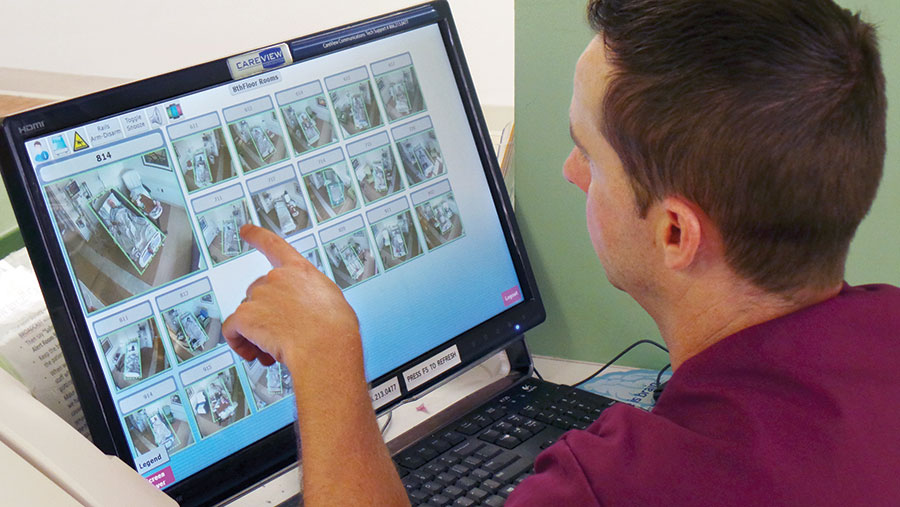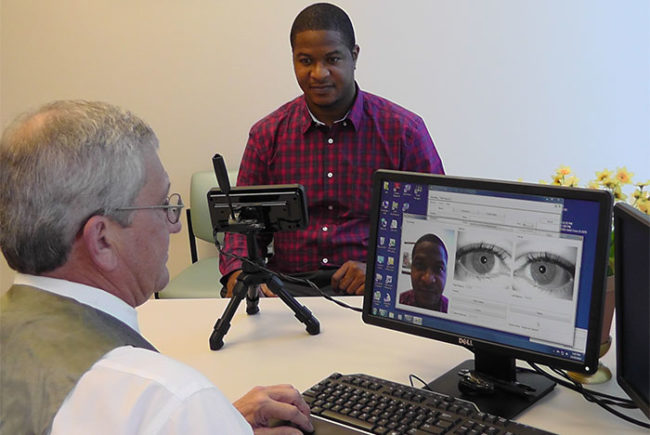
A caregiver is able to monitor several patients at risk for falls at one time.
Like most hospitals, Baptist Medical Center Jacksonville (Fla.) is grappling with finding a way to eliminate patient falls and in a cost-effective way. The results of a recently concluded pilot program at the medical center show that they may have found a solution to a difficult problem.
The medical center combined a high-tech patient monitoring system with hands-free communication devices for staff in an effort to prevent patient falls and especially falls with injuries.
After a three-month test period in 20 patient rooms, the results were zero incidents of patients who suffered falls with injuries, says Nancy Simon, vice president of patient care services at the medical center.
Baptist installed a system that includes a touch-screen monitor at the nurses' station and infrared video cameras in each patient room. The cameras allow staff to watch patients around the clock and at night without disturbing their sleep.
A distinctive feature of the system allows staff to "draw" an invisible motion-sensitive border around the patient's bed rails or chair by tracing it on the touch-screen monitor. If a patient crosses the protective border, staff are alerted by a visual and audible alarm.
Staff response to patient fall alarms is heightened through the use of hands-free communication devices, which break through any other calls occurring at the time and eliminate overhead paging, Simon says.
"Every second counts when it comes to fall prevention," she says. "Reducing falls and falls that result in injuries is a systemwide initiative."
This technology also has enabled Baptist Health to cut costs 86 percent by reducing the use of assistant care providers needed to watch high-risk patients. Instead of one caregiver being assigned to each room, one person can watch multiple patients simultaneously, she says.
Based on the success of the program, Baptist Health is looking at expanding the use of the falls prevention technology throughout the system, she says.
"We feel confident that we'll be able to make the case to extend this program further, reduce the cost of sitters and increase the safety of our patients," Simon says.
Baptist Health plans to document the results of the pilot program in a research paper so that other hospitals can learn about the technology, she notes.
The Agency for Healthcare Research and Quality estimates that nearly 1 million patients experienced a fall during a hospital stay last year.




